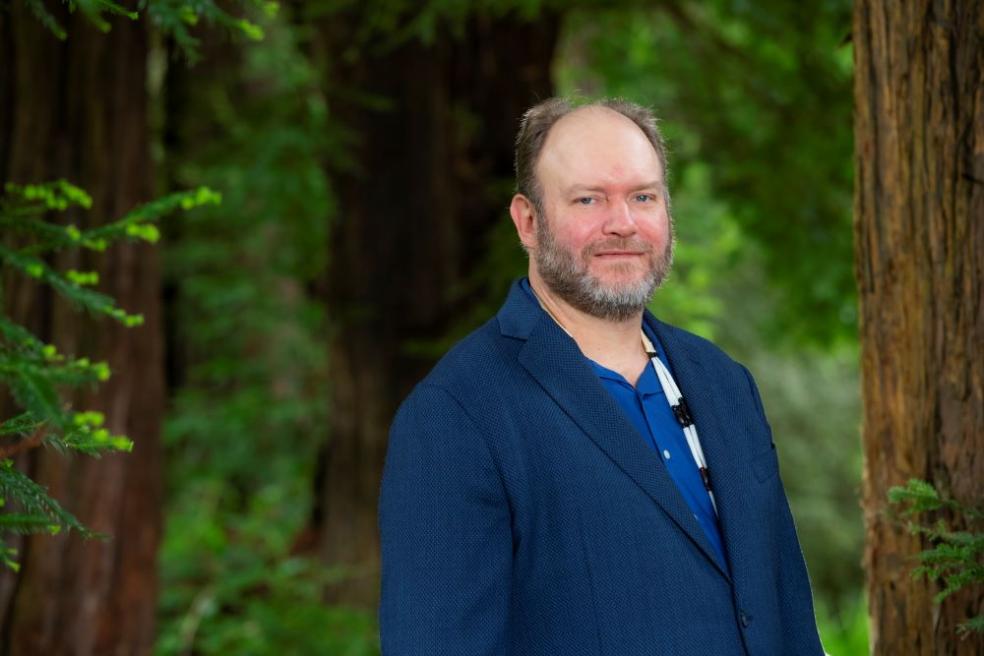
A Karuk cultural fire practitioner and Indigenous Knowledge steward, Tripp exemplifies Cal Poly Humboldt’s 21st-century polytechnic identity by centering Indigenous Knowledge in applied sciences to address real-world problems and enhance people's lives locally, statewide, and nationally. His efforts have significantly influenced policy, science, and practice throughout California and beyond.
Tripp currently serves as the Director of the Karuk Tribe Department of Natural Resources and Environmental Policy (KDNR) based in Orleans, California. With 32 years of experience in advancing Indigenous stewardship principles and practices, his dedicated efforts to reintroduce fire practices to the Karuk people have been remarkable. They have also inspired many other Tribes, both locally and nationally, to revitalize cultural fire practices and empower Indigenous communities.
Tripp serves on numerous boards and committees at local, regional, and national levels, demonstrating his leadership and expertise in fire management. Notably, he was a member of the Wildland Fire Mitigation and Management Commission and is a current member of the Wildland Fire Leadership Council. Through these roles, Tripp has provided crucial input for recommendations that advance national policies related to beneficial fire use and Indigenous stewardship.
His lifetime dedication to protecting and promoting fire use for Indigenous communities and the broader prescribed fire network is exceptional and represents a significant contribution to the understanding of human relationships with fire.
Tripp remains actively engaged at the local level. He dedicates time to work with students at Cal Poly Humboldt and other universities by offering guest lectures, field tours, and advising on student research projects. Many students and faculty researchers have benefited directly and indirectly from Tripp’s contributions, as seen in the number of research collaborations and publications he has helped to establish. Through these endeavors, Bill has created a meaningful connection between Western science and Traditional Ecological Knowledge, facilitating understanding and driving critical changes necessary for developing solutions to wildfire challenges.
His collaboration with researchers to educate and communicate Indigenous Knowledge, practices, and belief systems regarding fire and land stewardship has set a roadmap for effective cooperation with tribes and underscored the importance of Indigenous sovereignty and science.
“It is a great honor to be nominated and selected for this award. This work continues on as an intergenerational and lifelong mission. It is critical for the ability of future generations to learn to live with wildland fire. We learned how to manage these lands from the animals, with fire being our most effective tool. In order to truly revitalize this inherent responsibility to our homelands, it is absolutely imperative that we collectively work to bring fire back to the people.